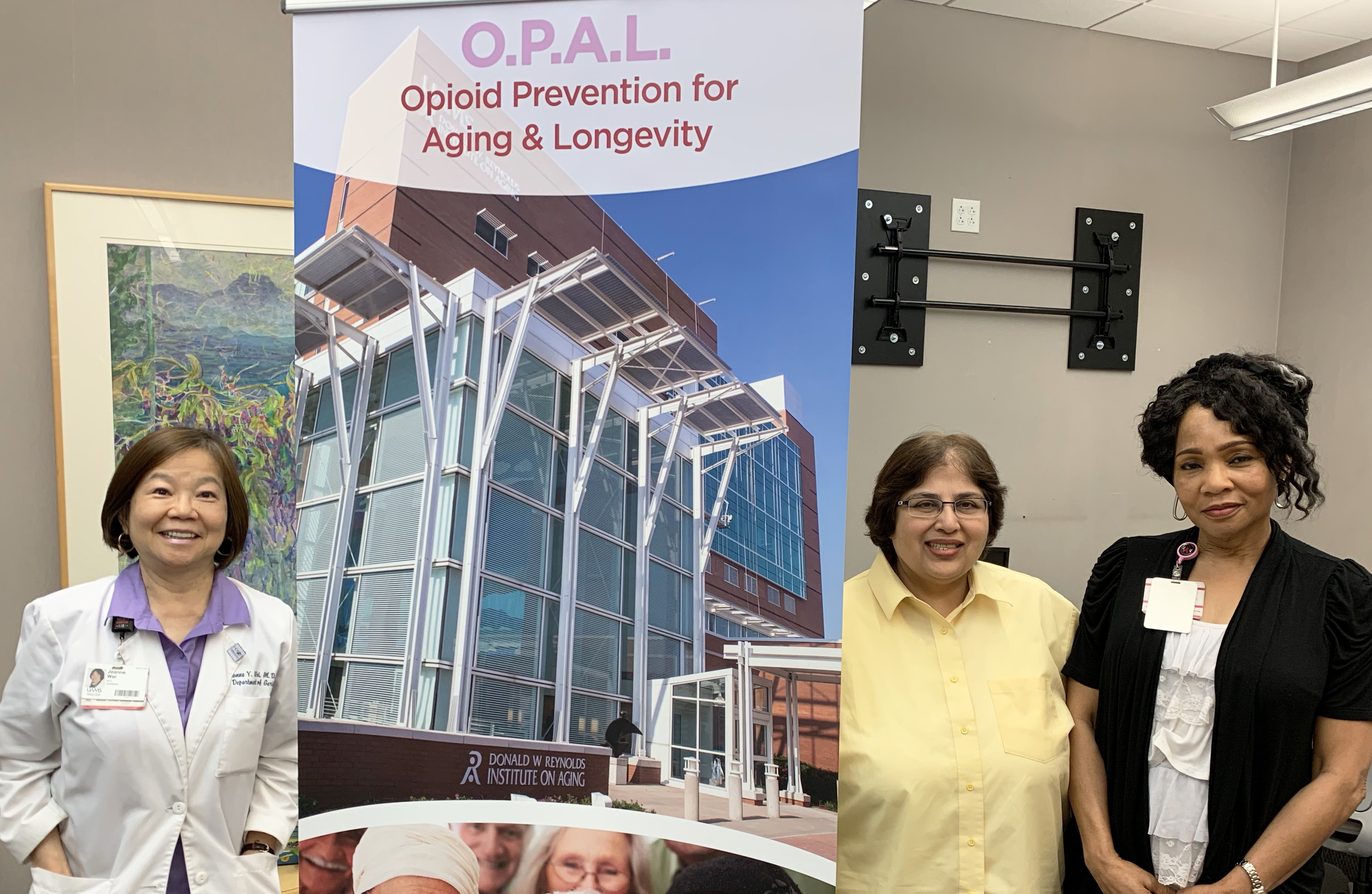UAMS Reynolds Institute on Aging Receives $800,000 for Opioid Prevention Program Focusing on Seniors
| With $800,000 in grants, the University of Arkansas for Medical Sciences (UAMS) Donald W. Reynolds Institute on Aging recently established a program aimed at preventing or reducing opioid use among seniors.
The Opioid Prevention for Aging & Longevity (OPAL) program is funded by the Arkansas Department of Aging and Adult Behavioral Health Services through an award from the Substance Abuse and Mental Health Services Administration, part of the U.S. Department of Health and Human Services.
“In our clinic at the Reynolds Institute, the median age is around 86 years,” said Jeanne Wei, M.D., Ph.D., director of the institute. “Our clinic is the largest, freestanding academic geriatrics outpatient clinic in the United States. For patients aged 90 and older, opioids are the fourth most commonly prescribed medicine. We know something needs to be done.”
OPAL has produced educational materials to distribute to older Arkansans at public events, and in the coming months, will provide public education statewide through the seven UAMS Centers on Aging to directly teach seniors about the risks of continued opioid use. Wei said the program also will collaborate with the eight UAMS Regional Campuses throughout the state.
Opioid use in older patients makes it difficult to accurately diagnose them with dementia or other cognitive disorders because opioids can commonly cause confusion, worsen memory impairment and result in fall injuries, Wei said. Over time, opioids can become ineffective in reducing pain. Opioid use may also worsen chronic pain and lead to death by overdose.
The risk for side effects from opioids is greater for patients 60 and older who have conditions like breathing or heart problems, depression, memory and sleep problems, and alcohol or substance abuse.
Reducing opioid use among seniors may also help to restrict the supply of prescribed opioids that make their way into illegal drug sales when they are taken from seniors by people in their homes, Wei said.
In addition, the program is developing materials to educate physicians, dentists and nurse practitioners who prescribe opioids about appropriate prescribing for older patients and to be aware of opioid-use disorder among seniors.
Arkansas has the second highest opioid prescribing rate in the United States, according the Centers for Disease Control and Prevention.
“There are so many other ways to manage pain,” Wei said. “We look forward to sharing these skills and opportunities with everyone.”
UAMS is the state’s only health sciences university, with colleges of Medicine, Nursing, Pharmacy, Health Professions and Public Health; a graduate school; hospital; a main campus in Little Rock; a Northwest Arkansas regional campus in Fayetteville; a statewide network of regional campuses; and seven institutes: the Winthrop P. Rockefeller Cancer Institute, Jackson T. Stephens Spine & Neurosciences Institute, Harvey & Bernice Jones Eye Institute, Psychiatric Research Institute, Donald W. Reynolds Institute on Aging, Translational Research Institute and Institute for Digital Health & Innovation. It is the only adult Level 1 trauma center in the state. U.S. News & World Report named UAMS Medical Center the state’s Best Hospital; ranked its ear, nose and throat program among the top 50 nationwide; and named six areas as high performing — cancer, colon cancer surgery, heart failure, hip replacement, knee replacement and lung cancer surgery. UAMS has 2,727 students, 870 medical residents and five dental residents. It is the state’s largest public employer with more than 10,000 employees, including 1,200 physicians who provide care to patients at UAMS, its regional campuses, Arkansas Children’s Hospital, the VA Medical Center and Baptist Health. Visit www.uams.edu or www.uamshealth.com. Find us on Facebook, Twitter, YouTube or Instagram.
